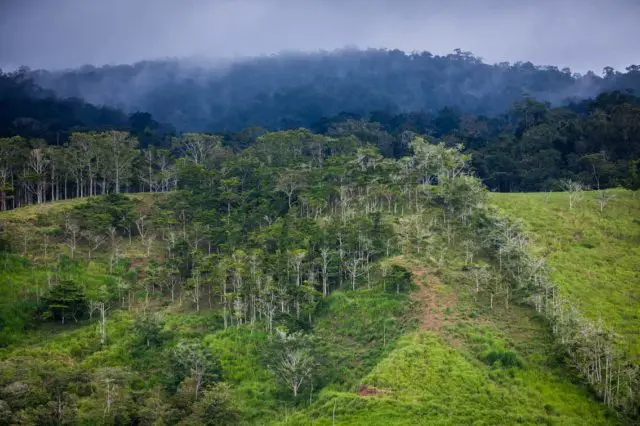
Given the questions and needs that have arisen in the national forest context, the Technological Institute of Costa Rica (TEC) has woven a close link with industry, research, and extension.
With the emergence 28 years ago of the Center for Research in Forest-Industry Integration (CIIBI), the TEC, through its School of Forest Engineering, created innovatively, a Center that not only investigated the industrialization of wood, forestry, and management of plantations and natural forests but was also a key active actor for these sectors.
Through its research and multiple publications, as well as its role in forestry industrial development, facing the new challenges of the context, in 2015, the CIIBI became the current Research Center for Forest Innovation (CIIF).
This change allowed expanding the services and laboratories, offering various facilities for studies that companies in the public and private sector require. Among these are, knowing the anatomy of the wood, drying it, laboratories for geographic information systems, non-destructive tests, soils, among others that promote balance and professionalization of the forest context. National.
Professional forestry development
The role of the CIIF has been key in the forestry development of Costa Rica thanks to actions with great impact carried out by this Center. In addition to the services available from its laboratories, the CIIF is the only national entity that certifies pallets, crates, and wooden packaging materials that are required for exports according to international standards.
Likewise, it is one of the entities in charge of certifying that the wood that is used by suppliers for school and college furniture has the appropriate conditions. It is also one of the entities that have been in charge of verifying that the social benefit houses have the appropriate wood in their construction. Likewise, the CIIF in conjunction with the National Forest Financing Fund (Fonafifo) has developed a set of rules for the use of various types of wood in the country.

Chynthia Salas, CIIF coordinator, indicated that 30 research projects are currently active, which integrate elements of extension and social action, as well as academic rigor in the publications derived from these.
The services and investigations are carried out by engineers from the School of Forest Engineering, who often articulate with other professionals in chemistry or the environmental area, which generates enriched results thanks to this interdisciplinary participation.
Also, both undergraduate and postgraduate degree students participate in the CIIF, who thus enrich their academic profile, while generating research experience for their professional future.

